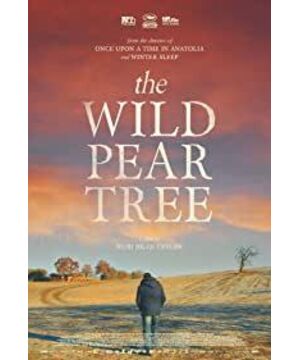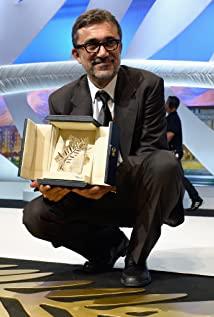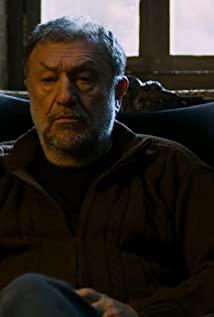Everyone's grief is different, but why do you believe your grief is special?
It took about six or seven hours. After reading it, I wiped the dust from the computer screen and thought of this question: Everyone's grief is different, but why do you believe that your grief is special?
The film uses three hours to tell the story of a young literary and artistic writer whose dream is gradually shattered.
The next paragraph is the detailed content of the story, if you are not interested, you can ignore it
The story takes place in Turkey, a tourist resort where the legend goes that the ruins of the Trojan War. The male protagonist Sinan returned to his hometown after graduating from university, carrying his own novel draft in his arms. His father was addicted to gambling and was financially poor and unable to provide financial support. In order to publish the local mayor, the boss of the battlefield asked for support for the publication. One is the official voice of a statesman, the other is the arty style of an industrialist, and was rejected by both of them successively. Sinan meets her high school friend on the way home, and in order to escape the depressing land, she decides to marry a local jeweler.
After watching the scene of her marriage, she had a fight with her ex-boyfriend for no reason. Then I went to take the national teacher public exam casually, and I have been hanging out in my hometown since then. Arguing with the local imam (Islamic leader) about religion, persuading the local gambler not to drag his father to bet on horses, and arguing with the local famous writer on literature. Everyone above is out of tune. Finally, I sold an old book of my grandfather for 700 lire to publish his novel. (The 700 lire has not been taken away by someone who took the 300 lire) After the novel was published, he wrote in the book dedicated to his mother: All credit goes to you. After this, the male lead joins the army. When he came back, he found that his books were piled with mold at home, and his mother and sister lived a lot because of his father's pension. And his father chose to live alone on a hillside in his hometown, dig a well without water, feed a flock of sheep that would not be responsible for him, and read a novel of his son repeatedly. (None of the male protagonist's novels were sold in the bookstore.) When he found his father, he saw that under the teacher's certificate in his father's wallet was a report on the publication of his novel.
Later, in the conversation with my father, I understood that my father was as complacent as him, and then accepted the baptism of life and accepted his own quality. The male protagonist's novel was only read by his father at the end, and he really liked it. At the end of the film, in the snowy winter, the male protagonist hangs in the well; then his father wakes up in his sleep to find his son digging hard in the well. (Choose one of the two endings, depending on which one you believe.)
or
Every literary and artistic youth has a dream of being a writer. Very few people persisted and succeeded, but most became the majority. I graduated from college last year and printed a manuscript of my own poetry in my sophomore year, and yes, I dreamed of being a writer too. The first job after graduating from college, I don't like to communicate, I am addicted to my own small world, and I am not happy if my work is not done well. Stayed at home for more than half a year after resigning. I also encountered such resentment, no one reads my poems, only I like and want to read them. I have a similar experience, but I also have a different situation. The poem was fully funded by my parents, and after it was printed, I gave it to friends and family. No one cares about it. Although I had expected such a result in my heart, I also longed to be recognized and my writing to be read. So the dream of being a writer gradually fell into silence, but writing did not stop. I succumbed to reality, and writing turned from a dream to an underground job. Work in order to survive, and having time to write is when you are on your way to your dreams. Now I don’t expect myself to be noticed, nor do I delusionally think that writing will become my profession, nor do I make money from writing. Donate all the rewards you get for writing articles to charities, hide your dreams in the depths, and quietly explore the fun of literature. Because I was afraid of death, I chose another path: continue to "dig the well".
My grief is nothing special, at least I see a group of people Sinan represents with the same distress.
"Burning" too.
So is "Deeper Than the Sea".
View more about The Wild Pear Tree reviews











